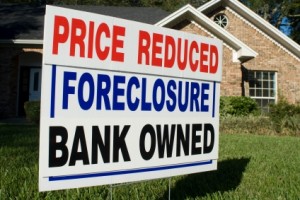
TEXAS BANKRUPTCY LAWYER: DOWNWARD TREND IN FORECLOSURES NOT NECESSARILY A SIGN OF ECONOMIC RECOVERY
I recently read an article in the San Antonio Business Journal by Tricia Lynn Silva regarding the downward trend in foreclosures. Her article says in part:
“As of Nov. 30 2011, a total of 10,124 foreclosure notices had been filed in the state of Texas for the month of November – marking a 208 percent increase from October filings, according to the latest report by RealtyTrac Inc. Over the past 12 months, however, foreclosure filings were actually down 24.3 percent in Texas.”
I suspect that something else besides recovery in the housing market is responsible for the reduced number of foreclosures. During the last year I have had several cases where a bankrupt client surrendered their home in their bankruptcy case. As a result, the debtor discharges the debt and is no longer personally liable for paying the mortgage. However, ownership of the home doesn’t transfer until the mortgage company forecloses on the property or the homeowner deeds the property back to the creditor.
There are several reasons why in this type of situation, a mortgage lender should want to obtain ownership of the home as soon as possible. First, abandoned properties tend to lose value, because the property is not being maintained and because of theft and vandalism. Second, property taxes continue to accrue, which are superior to the lien held by the mortgage company. As a result, every year the house stays vacant, the value of the mortgage company’s lien is diminished by the additional property taxes.
Based on these considerations you would think that a mortgage lender would move to foreclose as soon as possible, but that simply doesn’t appear to be happening. During the last year, in my experience mortgage lenders are taking longer to foreclose and in some instances refuse to foreclose or accept a deed in lieu of foreclosure when offered. I asked another attorney who represents creditors why this is the case and she responded that the mortgage companies simply have too many properties to process at this time so they are not moving as quickly to foreclose on properties as the law allows.
I suspect that the recent downward trend in foreclosures is simply a lull while mortgage companies get caught up on their backlog of defaulted mortgages. At some point they will likely create systems and procedures to increase their capacity for the foreclosure process and the numbers will begin to rise.
(Source: bizjournals.com)
Leave a Reply